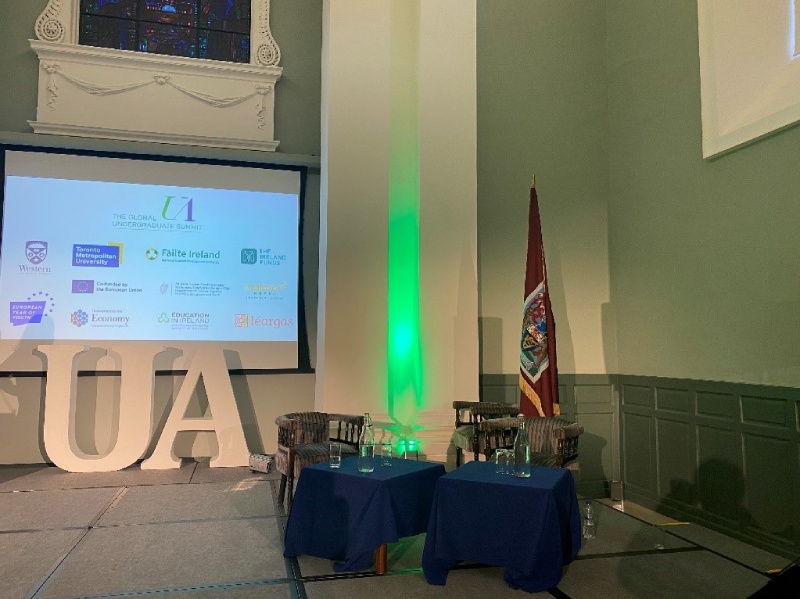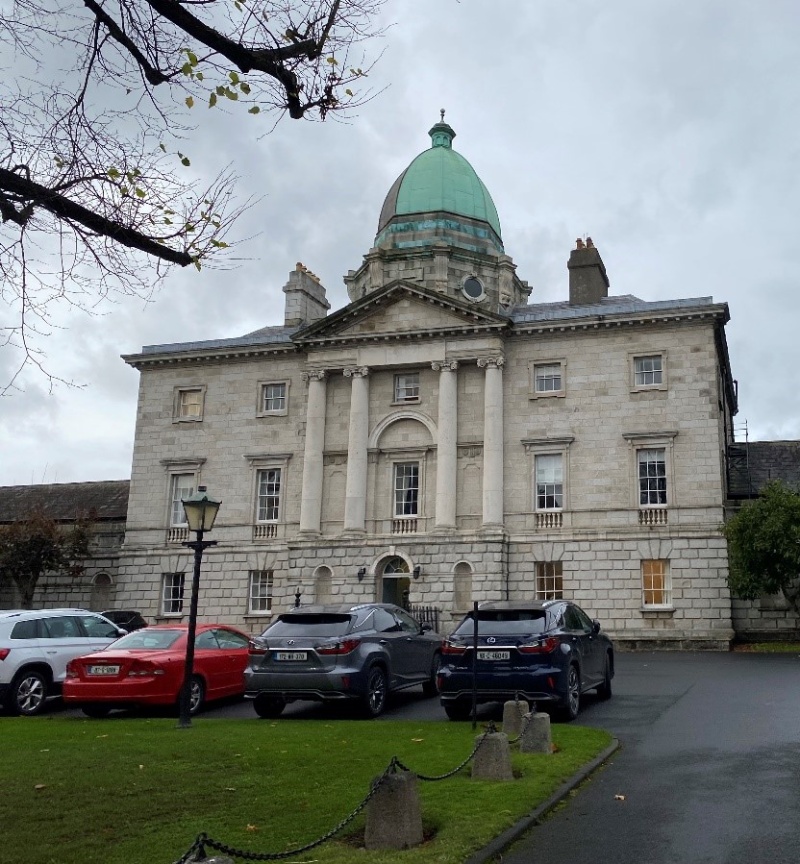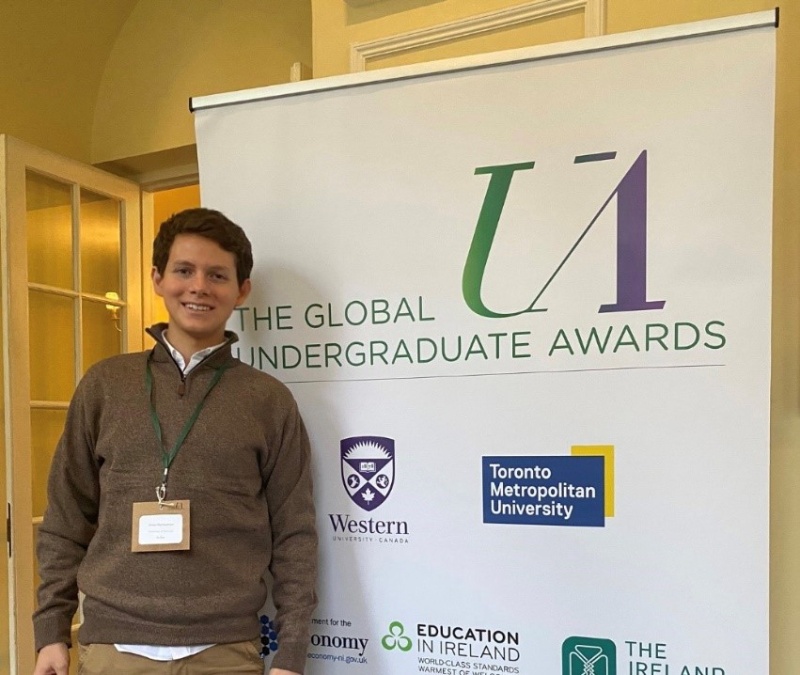Other News
Omer Manhaimer awarded the European prize for Politics and International Relations in the Global Undergraduate Awards 2022
Omer Manhaimer, who graduated in 2022 in Politics, International Studies and Quantitative Methods, won the European Global Undergraduate Award for his essay ‘Nonviolent action types and state responses: an empirical test’. Please see below for Omer’s brief description of the essay and the GA summit that brought together the winners in different categories. Very many congratulations to Omer.
Omer Manhaimer
Under the patronage of the President of Ireland, The Global Undergraduate Awards is the world’s largest undergraduate awards programme. Winning entries are selected by a panel of 640 judges from over 2,800 entries across 25 subjects. All entries must have received a mark of distinction to be eligible for submission.
Approaching the end of my degree programme—amidst essay deadlines, exams, dissertation writing, and final preparations for my graduate role—a reminder I had set eight months prior reappeared, prompting me to submit an essay to the Global Undergraduate Awards.
I graduated from University of Warwick in July 2022 with BA (Hons) Politics, International Studies and Quantitative Methods. This PAIS degree programme, run in conjunction with the Q-Step Centre, is unique within the UK social science undergraduate education landscape in its specialised focus on quantitative empirical research. I am very pleased to have been part of a university and a faculty that focus on equipping students with independent and innovative interdisciplinary research tools already at the undergraduate level.
I decided to apply for the Global Undergraduate Awards and submitted a paper that I deemed a paragon of my undergraduate writing. I had originally submitted it for my final-year module SO32Q: Applying Quantitative Methods to Social Research. My essay, "Nonviolent action types and state responses: an empirical test”, assesses the ability of nonviolent action types to explain variation in state responses to nonviolent collective action in Pakistan. In addition to addressing a geographical gap in existing literature, my study employs multinomial logistic models to address a quantitative gap in prior research. It made early findings of a relationship between non-violent action and state responses for protests and political engagement action types.

In September, I was informed that my entry was ‘Highly Commended’. This meant that it was within the top 10% of entries in the Politics and International Relations category. Two weeks later, I was delighted to be announced as European winner for this year. As winner, I was invited to attend the three-day UA Global Summit held in November in Dublin, Ireland. In addition, my paper will be published on UA’s Undergraduate Library.
The Summit was held at Blackhall Place, home to the Law Society of Ireland. During the Summit, winners had the opportunity to present their research findings. It was fascinating to learn about my peers’ innovative research in various disciplines, and exciting to see their dedication to their respective subject areas. My appreciation of interdisciplinarity has only crystallised as my fascination often turned into interesting conversations. It was great to be challenged to consider the implications of my research by those that study seemingly far-removed subjects.

In addition, we were able to listen to insights from various keynote speakers and engage in breakout workshops. The Summit also included a wine reception, a visit to the Jameson Distillery, and a Gala Dinner at King’s Inns. Attendees represented many countries and institutions, so it was great to form strong bonds with people with diverse backgrounds and perspectives. Finally, it was my first time visiting Dublin—a city with rich culture and history—which made this experience all the more enjoyable.
Winning this award is a culmination of several years of rigorous training in independent quantitative political research. To be recognised on a global scale is truly fulfilling, and I am thankful to the Global Undergraduate Awards for this opportunity. This achievement would not have come to fruition without the support of the Faculty of Social Sciences, as well as the Warwick Q-Step Centre and the Department of Politics and International Studies. Through enrichment opportunities and events, like Q-Step Masterclasses and the Research Assistant program that I was fortunate to engage with, I was constantly pushed toward academic excellence at Warwick. For that, I am very grateful.

You can learn more about the Global Undergraduate Awards on their website.
